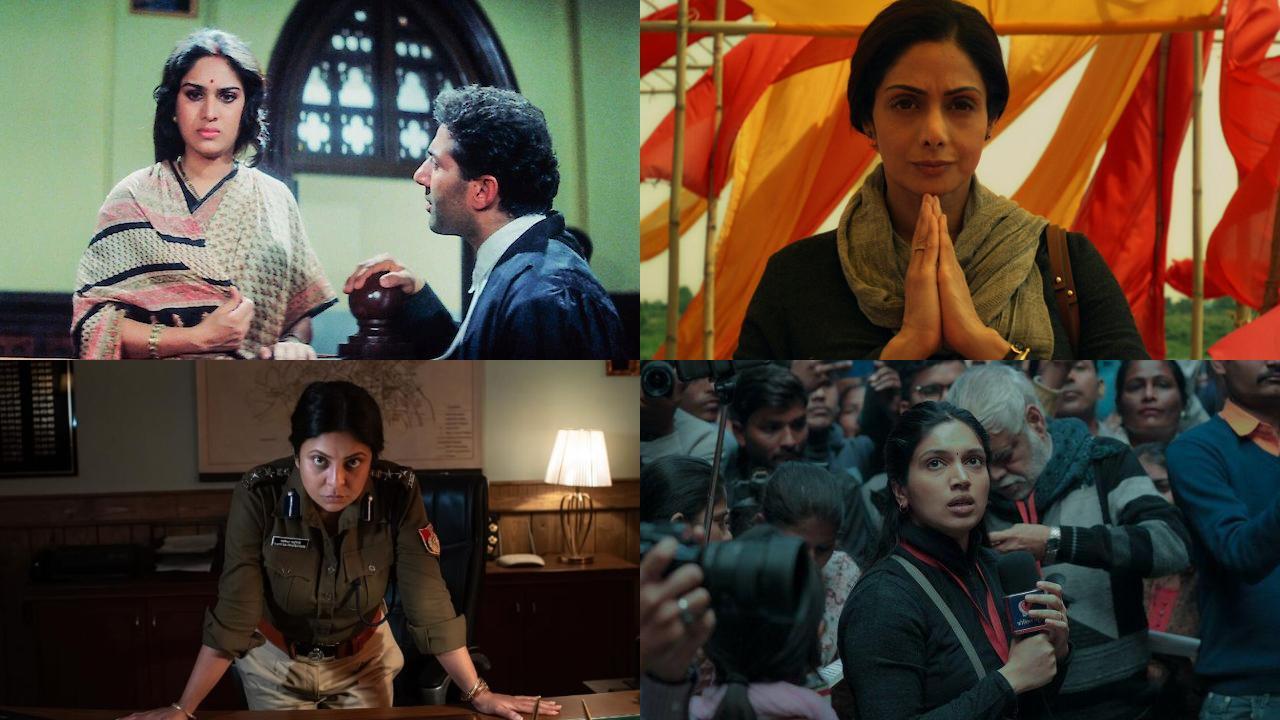
Cinema has long been considered a reflective surface of society, albeit sometimes overly dramatized. However, when it addresses issues like sexual assault and violence against women, it strikes a chord. Unfortunately, these themes are far from being commercial masterpieces, but they serve a crucial role in promoting progressive thought and eliciting emotional responses. Among the myriad films produced each year, only a handful delve into the sensitive portrayal of women’s atrocities, often moving audiences to tears. As recent headlines bring forth harrowing acts like the Kolkata rape and murder case and the Badlapur school incident, we are reminded of how cinema has brought to light the multifaceted cruelties endured by women.
“Damini,” starring Meenakshi Seshadri, stands as a seminal film from the 90s, a time when cinema sought to abandon its long-standing glorification of violence against women. Despite tainting the festival of Holi for many, “Damini” is remembered for its intense monologue that highlights the systemic victimization of survivors. The relentless grilling faced by the protagonist incites anger, providing a mere glimpse into reality’s grim landscape.
In the realm of courtroom dramas, “Pink” featuring Amitabh Bachchan, emphasizes the significance of consent—a concept that needed the actor’s profound voice to resonate with audiences. Contrastingly, “200 Halla Ho,” starring Rinku Rajguru, showcases an even more intense narrative. Drawing inspiration from the real-life incident where women in Nagpur lynched serial rapist Akku Yadav in 2004, the film, despite not receiving widespread recognition, offers an adrenaline-charged plot. It encapsulates the raw imagination of victims seeking retribution against their tormentors.
Films such as “Matrubhoomi,” “Parched,” “Article 15,” and the series “Delhi Crime” push the envelope even further. These gut-wrenching stories expose the stark brutalities some women endure, making their narratives difficult to digest. Yet, actors like Ayushmann Khurrana and Shefali Shah serve as reminders that justice can prevail, provided the system is navigated by brave souls unfazed by corruption.
.
On another front, the industry has brought to screen the heartrending trials faced by children through films like “Monsoon Wedding” and “Bhakshak.” Parental anguish is laid bare as these stories depict minors subjected to heinous acts. Children, the quintessential symbols of innocence, are shown grappling with trauma, some finding the strength to move forward while others succumb in despair.
Moreover, films like “Maatr,” “Mom,” and “Ajji” introduce audiences to mothers who transform into vigilantes seeking justice for their children. Raveena Tandon, Sridevi, and Sushama Deshpande breathe life into characters who, unshackled by fear, pursue their righteous goals. These films do not necessarily convey a lawful message but act as an escape for countless women who have envisioned exacting their own form of justice.
Hollywood too has not shied away from these themes. Western shows frequently foreground similar narratives to raise awareness, often highlighting the double-edged sword of dealing with minors who are victims. The portrayal of such delicate subjects requires a nuanced approach to avoid sensationalism while still capturing the emotional gravity of the situation.
The film industry, in its attempt to shed the blemish of glorifying rape and abuse, consistently produces content that seeks to dismantle misogynistic and patriarchal narratives. Although true justice remains a fantasy for many, filmmakers hold the power to foster change by opting for sensitive storytelling that challenges regressive mindsets. In a world where their influence is significant, the onus lies on them to make a difference through their art.
As new films continue to explore and bring to light such grim realities, they remind us of the resilience and strength women have shown throughout history. It is a call to introspection and a challenge for society to evolve—one film reel at a time.












